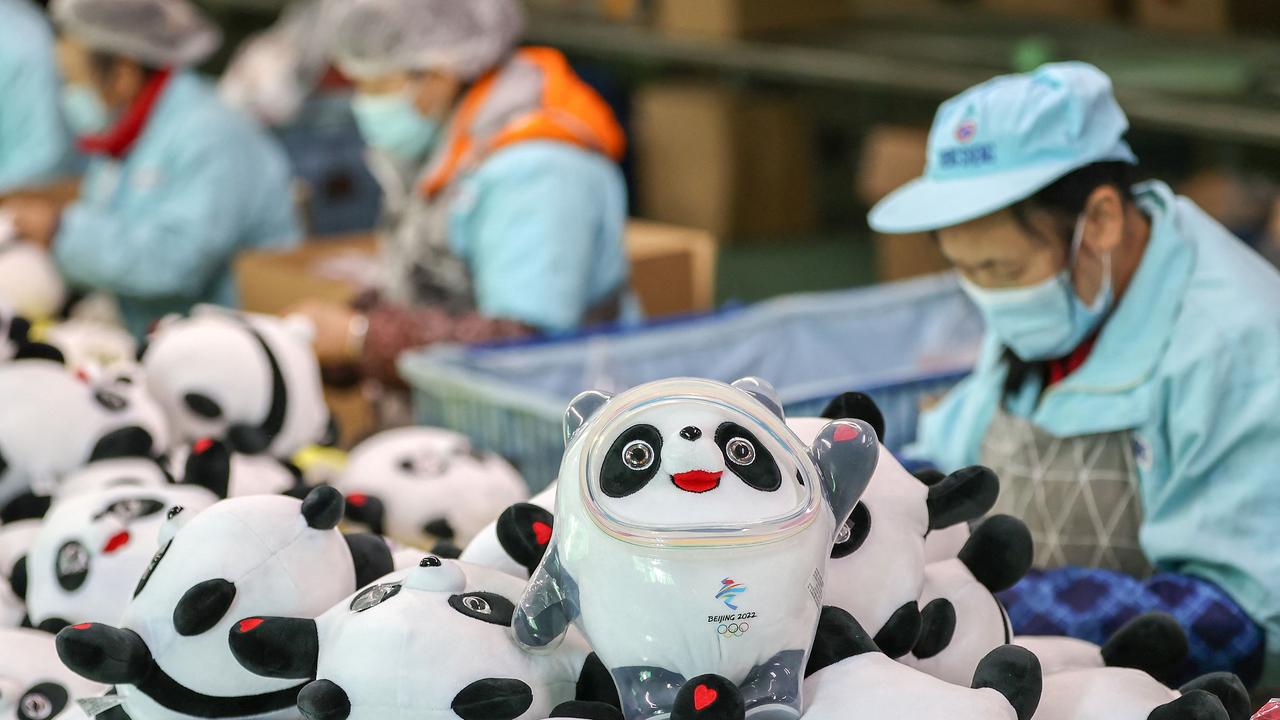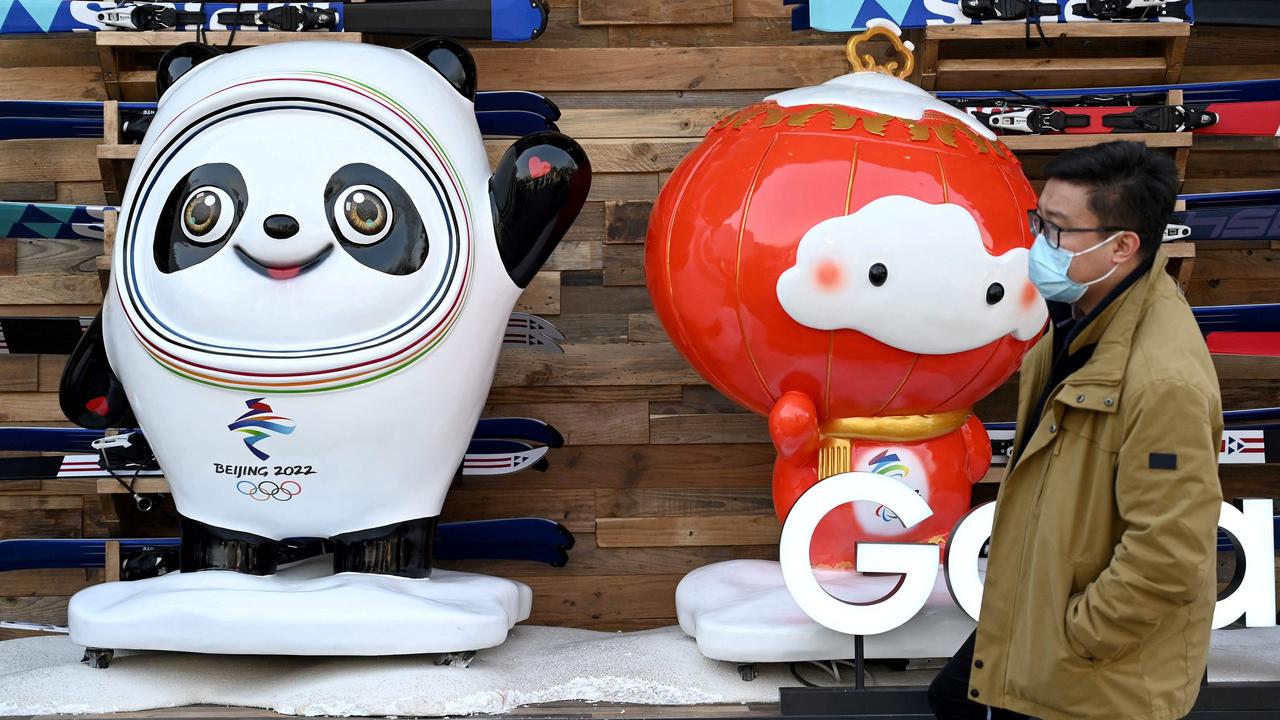Curious reason for Winter Olympics panda mascot’s ‘viral’ fame exposed
The adorable mascot for the Winter Olympics has amassed viral recognition on Twitter, but there’s more to its “fame” than meets the eye.
Roaring online popularity of China’s official Winter Olympics mascot seems legitimate when observing from afar, but closer inspections have revealed something far more sinister.
The cute panda on ice skates, named Bing Dwen Dwen, amassed Twitter hype that surpassed not only Beijing’s Opening Ceremony, but the entire Games itself — as well as the accusations surrounding the country’s human rights violations against Xinjiang and Uighurs.
While a seemingly impressive feat, the panda’s Twitter “fame” was particularly curious given the social media site is not accessible in China.
With locals and genuine fans physically incapable of tweeting their love for the cuddly bear themselves, its trajectory to instant viral fame has raised a major question.
Who is out there ferociously tweeting about Bing Dwen Dwen?

The wholesome panda sadly has a not-so-wholesome backstory, with its online popularity actually being manufactured by fake Twitter accounts created by the Chinese government.
Nearly 20 per cent of the accounts behind the 30,000 tweets about Bing Dwen Dwen have been created in the last month, while a further 15 per cent emerged last year.
The panda stunt may have been part of a broader project, with Chinese government documents showing agencies had been on a recruitment drive to manage their social media accounts and create new online narratives, according to the Sydney Morning Herald.
Accounts by names of Jessica77025679, bot47305224 and Dianna50973442 were among those tweeting their love for the panda, with some even beginning work before the Games started.
Bing Dwen Dwen has been famed by such accounts for its stance on coming “together for a shared future”.
Albert Zhang, a researcher at the Australian Strategic Policy Institute’s International Cyber Policy Centre, told the publication China’s Bing Dwen Dwen stunt was far from the first.
“It’s consistent with their previous propaganda and information operations,” he said.
“These operations are typically ineffective in the sense they get very little engagement but are spammy and can scale to thousands of accounts very quickly,”
He said it was common for China to promote positive images of the country in a ploy to protect its reputation from external forces.

“Promoting positive images of China such as the Olympics then creates a more favourable patriotic narrative,” Mr Zhang said.
With spectators largely banned from the Games due to coronavirus restrictions, Bing Dwen Dwen souvenirs were reportedly in hot demand.
Surging demand however has been outstripping supply, with Chinese media reporting long queues at a main souvenir shop in Beijing and disappointed fans being turned away.
Many social media users in China complained the toys had sold out on popular e-commerce platforms like Taobao, Tmall and JD.
A hashtag calling for “One (Bing Dwen) Dwen per household” generated 210 million views on China’s Twitter-like Weibo platform on Sunday.
– With AFP





